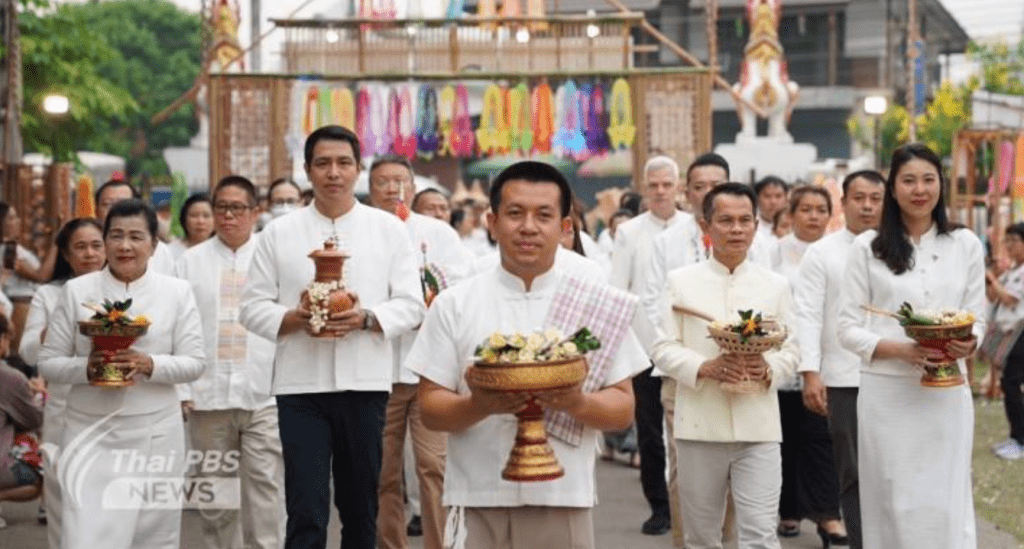According to Patsin Sawetrat, director of the Tourism Authority Authority’s Chiang Mai office, approximately 70% of hotel rooms in Chiang Mai are currently booked, with many of them being occupied by international visitors, even though the PM2.5 situation is deteriorating.
She acknowledges that the smoke from forest fires might impact tourism, but states that it happens every dry season, and she anticipates a rise in hotel occupancy during the Songkran festival from April 12 to April 16.
She mentioned that the expected revenue from tourism during Songkran in Chiang Mai is estimated at about 1.2 billion baht. Additionally, she mentioned that the TAT office has conducted a “sacred” water ceremony at nine temples to bless the city and its people.
The “sacred” water, amounting to 17,728 bottles, will be distributed to the city's residents as a favorable item. A similar ceremony has been held in the province for the past four years.
After today's regular cabinet meeting, Natural Resources and Environment Minister Patcharawat Wongsuwan has called an urgent meeting of a high-level committee to address the PM2.5 situation in Chiang Mai.
In response, Governor Nirat Pongsitthithavorn of Chiang Mai has instructed all local administrative organizations to provide at least three clean air rooms at each organization. Similar facilities will be available in all hospitals.
He stated that health officials have been instructed to pay special attention to over 400,000 individuals identified as “fragile” and at high risk from PM2.5 pollution.
This group includes more than 100,000 children under five, over 3,000 pregnant women, over 6,000 bed-ridden patients, more than 4,000 patients with asthma, about 250,000 disabled and elderly individuals, and about 1,600 people with heart disease.
People are recommended to wear face masks when outdoors and to stay indoors as much as possible until Thursday.









